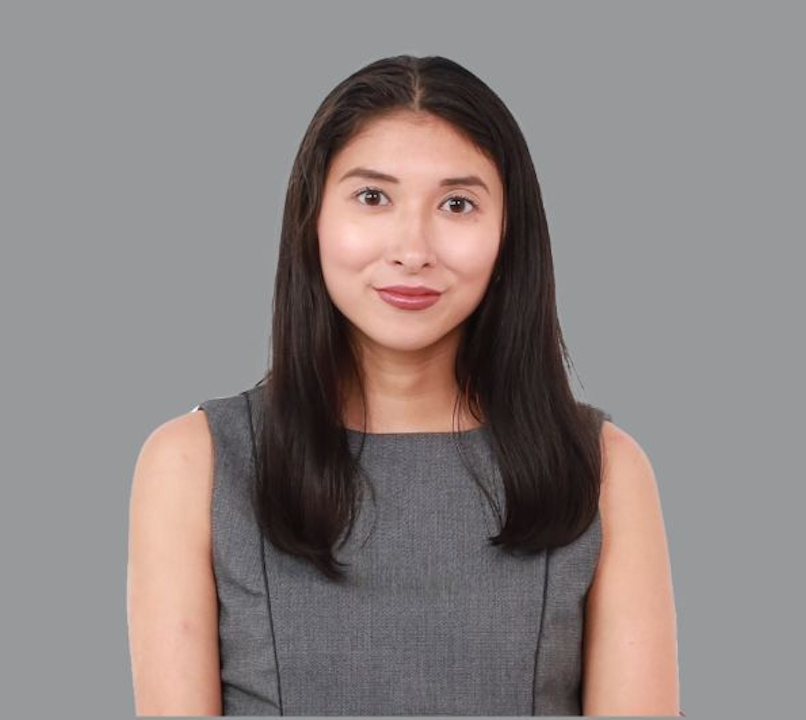Looking to book right now?
Click the button below to book your first appointment at CITC through Owl Practice.
Cognitive & Interpersonal Therapy in Toronto
Helping You Improve Mental Health & Well-Being Through Proven Clinical Approaches
CITC is a Toronto-based psychology practice located in Midtown, Toronto. Our team includes psychologists, psychotherapists, occupational therapists, and student clinicians. We offer therapy and assessment services in person and online. From the comfort of your home and anywhere in Ontario, you can talk to one of our mental health professionals through a secure and encrypted portal.
Years in
Practice
Clients
Treated
Licensed
Clinicians
Average Time to Book a First Appointment
Types of Therapy
Explore the diverse array of mental health services our psychologists and therapists offer. Our services include individual therapy, couples therapy, family therapy, parent counselling, and career counselling.
We provide therapy services to children, adolescents, adults, and seniors, as well as families and couples. Our treatment approaches are varied and include Cognitive Behavioural Therapy (CBT), Interpersonal Therapy (IPT), Acceptance and Commitment Therapy (ACT), and mindfulness, among others.
Life can be a lot. Maybe you’re feeling stuck, overwhelmed, or just not like yourself. Maybe you’re not even sure...
Growing up isn’t easy, kids and teens navigate big emotions, shifting friendships, school pressures, and family...
At CITC, we understand that every family is unique, shaped by its own dynamics, histories, and connections. Families are...
For better or for worse, the only way forward is together. Every committed relationship is rooted in love deepened...
Sometimes parents experience difficulties finding ways to effectively communicate with their children who may struggle with anxiety, mood issues,...
Life doesn’t always slow down when you need support. That’s why we offer secure, virtual therapy that fits into your life. Whether you’re...
Treatment Areas
Click through to explore the different areas we support at CITC. If any of these challenges feel familiar, remember you’re not alone, and you don’t have to navigate them by yourself. Our therapists are here to help you find clarity, relief, and effective strategies for moving forward.

Anxiety
Some worry is normal. It keeps you from walking into traffic, reminds you to prepare for big meetings, and ensures you don’t forget your keys. But when anxiety is running...
Learn More
Depression
Depression isn’t just feeling sad or having a rough day. It’s a weight that lingers, making even the simplest tasks feel overwhelming. It’s a...
Learn More
Relationship Difficulties
Relationships are where we laugh, lean in, and share the most vulnerable parts of ourselves—and they’re also where we can feel the most pain. When conflict arises or...
Learn More
Grief & Loss
Grief is one of those experiences that feels impossible to put into words—and yet it demands to be felt. It’s not just the loss of a person; it’s the loss of a role, a...
Learn More
OCD
Living with OCD can feel like being caught in an endless loop of what-ifs and must-dos. It’s not about being overly neat or organized—that’s a...
Learn More
Trauma & PTSD
Trauma leaves a mark. It might not always be visible, but its impact can shape how you see yourself, others, and the world around you. For some, it’s...
Learn More
First Responders
First responders regularly face high-stress, high-stakes situations that most people will never encounter. Police officers, firefighters,...
Learn More
Stress Management
Stress is a rapidly growing problem across North America. More Canadians are facing mental health issues related to stress and anxiety than ever before. At the Cognitive &...
Learn More
Mindfulness
Mindfulness is the practice of maintaining awareness of your thoughts, emotions, physical sensations and the world around you with openness, curiosity,...
Learn More
Improved Sleep
The average adult human requires 6-8 hours of sleep every night. Unfortunately, modern Canadians often fall below this requirement line. Losing sleep has a long list of...
Learn More
Improved Communication
Communication is the key to many aspects of life. Whether building a friendship or building a professional partnership, your ability to communicate can make or break your...
Learn More
ADHD & ADD
Attention Deficit Hyperactivity Disorder (ADHD) and Attention Deficit Disorder (ADD) are common neurodevelopmental conditions that impact focus, behaviour, and learning. While...
Learn More
Chronic Illness
Living with a chronic illness isn’t just a physical experience—it’s a whole-life experience. It can feel like your world has been flipped upside...
Learn More
Gender & Sexual Identity
Understanding and embracing your sexual and gender identity is a deeply personal process, and it’s not always easy. Sexual orientation, gender...
Learn MoreTreatment Approaches
Our mission is to support you on your mental healthy journey to healing. Reach out and schedule a counselling appointment with us today we’re here to help you every step of the way!
Solution-Focused Approaches
Psychodynamic Approaches
Narrative Therapy
Mindfulness-Based Approaches
Exposure Therapy
CPT
Cognitive Behaviour Therapy
Interpersonal Psychotherapy
Acceptance and Commitment Therapy
Emotion-Focused Therapy
Eye Movement Desensitization Reprocessing
Assessments
We offer assessments for children, teens, and adults. Through comprehensive testing, we can identify both challenges and strengths to develop a personalized plan focused on effective coping strategies and improved day-to-day functioning. Browse through our website to learn more about the types of assessments we offer and which one may be right for you or your child.

Dr. Carolina McBride
Clinical Psychologist – Owner & Director
Our Vision
Cognitive & Interpersonal Therapy CentreTM Opened in 2003.
CITC embraces the vision that both cognitive and interpersonal factors play a vital role in psychological health. We believe that meaningful change occurs by addressing the ways you think, how you relate to others, and how you engage with your environment. By targeting these areas, we can help bring about profound improvements in your daily functioning and overall well-being.
We are committed to offering the highest quality care by integrating a range of evidence-based treatments. In addition to cognitive and interpersonal therapies, our clinicians are trained in and may draw from a variety of therapeutic approaches, including but not limited to:
- Cognitive Behavioural Therapy (CBT)
- Interpersonal Psychotherapy (IPT)
- Emotion-Focused Therapy (EFT)
- Acceptance and Commitment Therapy (ACT)
- Mindfulness-based interventions
- Psychodynamic therapy
- Family Systems Therapy
- Trauma-informed approaches, including EMDR
Our services are personalized and tailored to meet your specific needs, preferences, and goals. Whether you are seeking help for anxiety, depression, trauma, relationship challenges, or personal growth, we work collaboratively with you to create a treatment plan that is right for you.
To support our vision, CITC is committed to ongoing evaluation and continuous improvement of our clinical practices. We strive to remain current with advances in the field and to evolve in response to client needs and emerging best practices.
CITC is proud to provide psychology and psychotherapy services in a safe, inclusive, and supportive environment. We serve individuals across the lifespan—children, adolescents, adults, couples, and families—from diverse cultural, gender, and socioeconomic backgrounds.
We are also dedicated to the professional development of future mental health professionals. CITC offers supervision and training for graduate students and for those pursuing registration with the College of Psychologists and Behaviour Analysts of Ontario and the College of Registered Psychotherapists of Ontario. Our team is committed to lifelong learning, professional excellence, and the highest ethical standards.
At CITC, we believe that everyone deserves access to compassionate, evidence-based care that fosters resilience, healing, and growth.
What To Expect
Starting therapy can feel like a big step, but we’re here to make the process clear and supportive from the start. Here’s what you can expect:
Screening Assessment
We start with a brief complimentary phone intake to understand your needs and goals.
Therapist Match
Based on your concerns and preferences, we match you with a therapist who’s the right fit.
Initial Assessment
Your first session is about getting to know you, exploring what brings you to therapy, and setting goals and expectations.
Personalized Treatment Plan
Together, you and your therapist will develop a plan tailored to your needs, whether that’s short-term support or longer-term therapy.
Meet Our Therapists
Therapy works best when you have the right person by your side. At CITC, our team of skilled and compassionate therapists is here to help you navigate whatever’s on your mind, whether it’s anxiety, relationship challenges, life transitions, or just feeling a little stuck. We believe in therapy that feels human: real conversations, real connection, and real change.
































Ask Our Therapists
Have a question about therapy, mental health, or how our services work?
Our team of clinicians is here to help. Submit your question to our Ask Our Therapists page, and one of our psychologists or psychotherapists will respond within two business days. We’ll also share helpful answers (anonymously) so others can learn from them too.
Need A Match?
We Got You!
Finding the right therapist can feel overwhelming—scrolling through profiles, trying to understand the different approaches, and wondering, Will this person actually get me? That’s where our Clinical Coordinator comes in.
We don’t leave you to figure it out on your own. Instead, we take the time to understand what you’re looking for, what you need, and who might be the right fit.
No guesswork, no mismatches, just a thoughtful, personalized way to begin your therapy journey. Reach out—we’ve got you.
Meet With Our
Clinical Coordinator

We Are Here to Help!
Schedule a call with one of our health care coordinators to answer your questions and help you find the best solutions for you and your loved ones




















